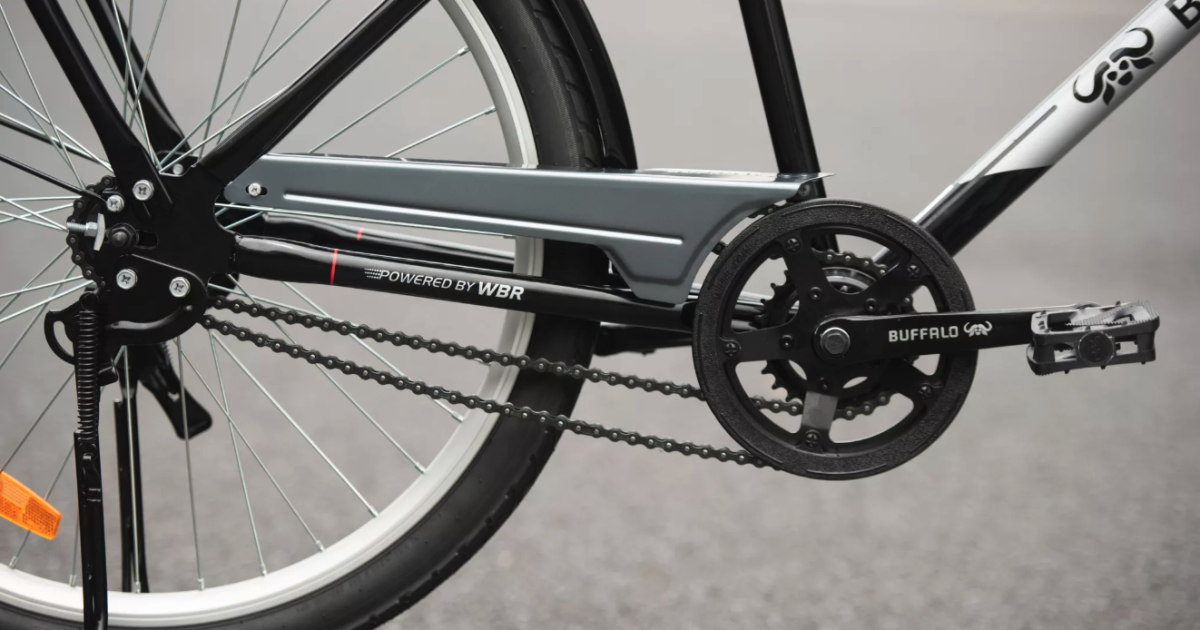- cross-posted to:
- [email protected]
- cross-posted to:
- [email protected]
World Bicycle Relief explains that its Buffalo bicycles are designed to be “extremely durable to serve the needs of people who travel long distances over rugged terrain with heavy cargo in some of the world’s harshest environments.” With that in mind, simplicity and ruggedness are absolutely critical, and the redundant chain system is designed to provide a high/low gear solution that involves as few breakable, externally mounted parts as possible. These bikes are being delivered to places that don’t have access to bicycle shops or spare part overnighting, so making something that’s as tough and easy to repair as possible is an essential part of WBR’s job.



Use a belt drive instead. They are super strong and dont get elongated over time.
Otherwise use a shaft driven axle with oil submerged gears. That shit never breaksEdit: i don’t understand why people down vote? A well maintained bike chain can only run between 3000-8000 km at best and that’s under good conditions. A belt drive can easily run 20.000 km and some stories of over 40.000 km and can run In mud and snow without trouble. It does not need any lubricant and only a little water to clean it now and then.
For shaft systems i see that they are less developed for bicykles. On motorbikes it’s more common and it never breaks.
Source for 40.000 km on a belt drive: https://www.cyclingabout.com/belt-drive-better-than-chain-drive-bicycles/
___sounds expensive
A bit up front yes, but you can drive over 15.000 - 30.000km on a belt set with very little to no maintenance. And the price for belt drive is still coming down and is really price competitive already. I have belt drive on my bike and have done nothing to it at all for 3000 km and it still runs smoothly.
You have to put it into context: these bikes are going to some of the most remote, poor parts of the world. How many belt drive dealers would someone run across in that situation?
And even if they last 30,000 km, what happens when they finally do need to be replaced? You need a split frame, which this particular bike can’t do without madding massive costs and introducing more things to break.
A single speed bike chain is very easy to find, dirty cheap, and last a very respectable amount of time.
The people using these bikes are in a “if it isn’t broke, don’t fix it” situation, and the previous model of this bike (true single speed) was working great for them. This very simple upgrade gives them a considerable amount of versatility.
Adding one more gear to a single speed belt drive bike would just make these unaffordable for the charity giving them to these people. And it would likely leave many of them stuck once maintenance finally has to be done.
Totally fair points. But if it is supposed to be for poor areas patenting the system seems like a counter productive choice. Yes chains are cheap but so would a new manufacturing process for belt drives be. The gears for belt drive can be cast from composite plastics making them relatively cheap. Old fasion belt splicing kits exist as well and could be implemented if you really wanted to avoid the split frame or they could develop a simple split frame conversion kit where you can cut out a section and clamp it back together with a bracket. It doesn’t have to as complicated as one might think. Most of the conversion kits today are expensive because they also needs to look good and fancy, but for rural areas funktion is king and it could be made much simpler with two bracket and 6 bolts clamping the frame together. I just belive that belt has a lot more potential because it is really really durable and good for harsh environments with no lubricant needed.
Never seen a shaft driven axle used in those conditions, I’ve only seen it in a city where the roads are smooth
Fair point
Belts don’t break. Even when you need them to. Chains go through the rear triangle by breaking and rejoining. Belt drive requires a special frame with a set of compromises that might not be suitable.